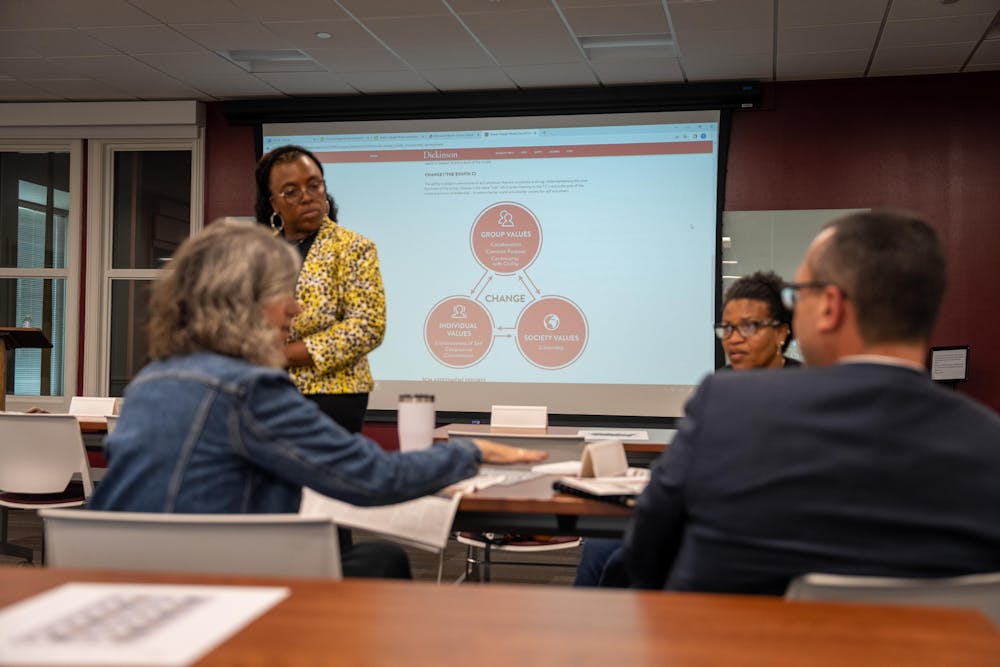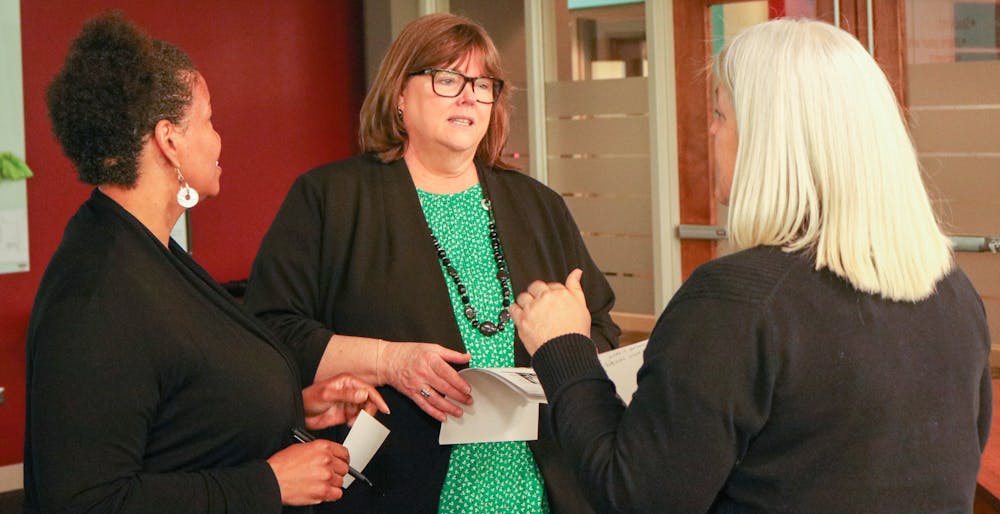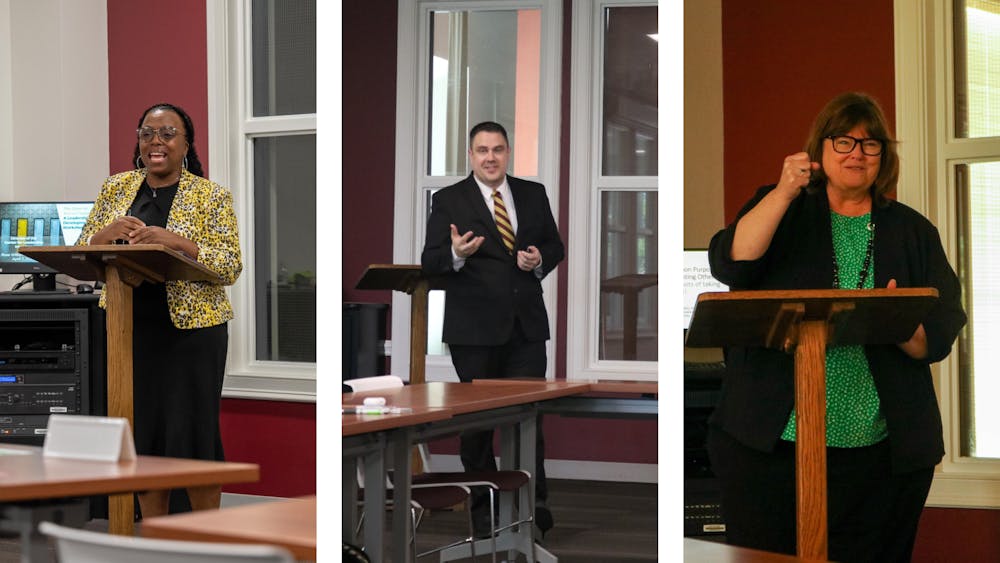Elon University is searching for its next director of the Center for Leadership, where Larry Mellinger is serving as interim director.
Mellinger is also co-chair of the search committee along with lecturer in human services studies Deidre Yancey.
“We're looking for somebody who is going to be an individual,” Mellinger told Elon News Network. “As we continue to emerge from the most challenging parts of the pandemic, Student Life and that kind of curricular and co-curricular partnership and integration and collaboration — and Student Life’s role in that in general — we're going to need folks who are forward thinking.”
Mellinger said he’s going back to his normal position as director of campus recreation and wellness on June 1 when the new CFL director is scheduled to start.
Rose Williams
Elon’s Associate Director of Campus Recreation and Wellness for Student Wellness Rose Williams was the first candidate to speak and presented to members of the CFL on April 7.

Having arrived at Elon in 2019 with more than 20 years of educational experience, Williams presented on the social change model and focused on providing the tools for her audience to be able to define social change.
Setting up the idea of a doorway as a metaphor for new beginnings and the idea of the unknown, Williams reviewed the “seven Cs” and how they can act in unity as the keys to each person’s door.
Further highlighting three subcategories of identified values in the social change model, Williams identified the concepts of consciousness of self, congruence and commitment as individual values, collaboration, common purpose and controversy with civility as group values and citizenship as a community value.
According to Williams, recognition and growth of these values within a community does not happen naturally and must be intentional for building relationships, sparking conversations and dealing with divisive issues as leaders on campus.
“You might enter into it by yourself, but you're not going to leave alone. It's about doing work in community and with others. It's based on values,” Williams said. “All students can be a part of it. Leadership is not just reserved for superheroes or VIP status. Everyone can enter into leadership, it just may be beyond this particular title, and it may be beyond what our connotation or association is with leadership. Every leader is not out front and extroverted. Every leader is not introverted and in the background. It's all tailored for that person and not prescriptive.”
David Stout
The second candidate, David Stout, presented on campus April 12. Stout is currently the assistant dean of students and director of the Saving Our Students program at University of North Florida. He received his doctorate in leadership in educational administration from the University of Florida.
In Stout’s presentation, “The Resilient Relational Leader,” he spoke about his experience working in student affairs, models of leadership and the role of resilience in leadership.
“We go into student affairs … to make sure that when we're working with students, we can see them become versions of the best selves,” Stout said.

Stout’s presentation led attendees through a four page worksheet that encouraged participants to reflect on their leadership style, motivations and support system.
“I am very, very relational based. To me, relationships are an enormous part of the connectivity we have,” Stout said. “When you make a new connection with somebody, and they help you discover things about yourself, you help them discover things about themselves.”
Stout’s presentation explored the relational leadership model. This process oriented model emphasizes ethical decision making, inclusivity, empowerment and purposeful actions.
“If you are empowering other folks, if you’re inclusive, if you have a shared vision and shared purpose you’ll find that it’s not much weight on your shoulders because everybody buys in,” Stout said. “There’s nothing like being on a team.”
Tierza R. Watts
The third and final candidate, Tierza R. Watts, presented April 17. Currently a leadership educator and Director for Student Life at the University of Colorado, Denver, Watts spent 20 years in residence life and close to 14 years working in student life. Watts received a master’s degree in college student development from Appalachian State University.
In her presentation Watts led attendees through two leadership models: the social change model of leadership and the cues and postures leadership challenge. Watts said the social change model is most important to establish values.

Director candidate Tierza R. Watts gives speech on April 17.
“We really focus on individual, group and societal values,” Watts said. “It's important to know what’s my leadership style, what’s my conflict management style, what’s my communication style and how does that impact others.”
Similarly, the cues and postures leadership challenge is meant to plan out how a leader will guide others.
“This model has five different sections,” Watts said. “They are showing people how to be a leader within their group and team.”
Watts emphasized the importance that students on Elon’s campus should feel comfortable to talk with the Center of Leadership.
“There is a place for every student to come in and figure out ‘who am I’,” Watts said.
Additionally, she believes the most important step to take is the first one.
“I have not solved world hunger,” Watts said. “But I still volunteer at soup kitchens.”


